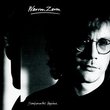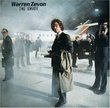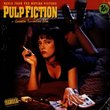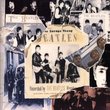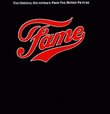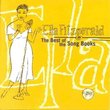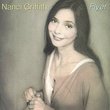| All Artists: Warren Zevon Title: Transverse City Members Wishing: 1 Total Copies: 0 Label: Msi Music/Super D Release Date: 8/28/1998 Album Type: Import Genres: Folk, Pop, Rock, Classic Rock Styles: Singer-Songwriters, Singer-Songwriters, Album-Oriented Rock (AOR) Number of Discs: 1 SwapaCD Credits: 1 |
Search - Warren Zevon :: Transverse City
 | Warren Zevon Transverse City Genres: Folk, Pop, Rock, Classic Rock
Reissue of 1989 album includes collaborations with Bob Dylan, Jerry Garcia, Jackson Browne plus the bonus track 'Networking' (acoustic version). EMI. 2004. |
Larger Image |
CD DetailsSynopsis
Album Description Reissue of 1989 album includes collaborations with Bob Dylan, Jerry Garcia, Jackson Browne plus the bonus track 'Networking' (acoustic version). EMI. 2004. Similar CDs
Similarly Requested CDs
|
CD ReviewsHis Best J. Stiene | PA | 10/24/2005 (5 out of 5 stars) "Travese City is an unknown gem. A flawless album with great lyrics and music. I'm amazed this never got anywhere. It's a masterpiece. This is his 'Armed Forces.'" Rich lyrics set with Zevon's almost unique song writing styl Craig Matteson | Ann Arbor, MI | 08/28/2006 (5 out of 5 stars) "While I am an admirer of Warren Zevon, I am not a committed fan simply because Rock Music is too much of the same thing over and over again to hold my interest. Rage, lust, and rampant irresponsibility can only go so far in life. Say, 25 years. Then you have got to find a way to pay the bills and raise the kids. Or pretend you are still a child forever, which seems to be the current ideal. Anyway, a friend gave me a copy of this album and I listened to it and was intrigued enough by it to listen several times. As I listened I learned something new about Warren Zevon as an artist. I knew he was capable of the catchy, the odd, and the quite poignant, but this album shows him with a strong range as a songwriter. These aren't "hits". They go after a certain point, however Zevon dresses them up, and then uses the elements of Rock and Roll in often unexpected ways to pull them off. For me, that is an artist. Rather than being a user or even a prisoner of the form, the artist turns things on their head and makes the form and the elements of that form work to do what he wants done. Some have described this as a concept album of a nightmarish future. Kinda. It is dressed up in the silly suits of some futuristic doom, but like all these fantasies it is more about getting enough remove to make its commentary on contemporary things more hearable. It isn't so much a prophesy as parable. The opening (title) song is indeed about an awful place where life is cheap and death is free. But its best moments come in the droning and relentless chorus: Here's the hum of desperation Heres the test tube mating call Here's the latest carbon cycle Here's the clergy of the mall Here's the song of shear and torsion Here's the bloodbath magazine Here's the harvest of contusions Here's the narcoleptic dream The music has kind of an oriental noise all around a rather basic and repetitive vocal line. The effect is to reinforce the feeling of being trapped and desperate. The second number is "Run Straight Down" and is a terrific song of bleakness. It opens with this undervocal of a list of chemicals that provide an almost inaudible ostinato to the work. The lyrics describe a desolate place and the singer's only response is to go home and watch TV. He would rather watch the world run straight down into ruin than live in it. "The Long Arm of the Law" is about a police state paranoia in a world where someone is out to get you. It opens: "When I was young, times were hard /When I got older it was worse" and later: "Now, don't protest your innocence / Only the dead get off scot free". The music is a driving and simple pop format, but is still hard enough to support the words. "Turbulence" is a strange number about the Russian Afghan war from the Russian grunt's point of view. He is complaining that the turbulence in Moscow has brought turmoil to him. There are even some Russian lyrics. While not a great song, this is the kind of song only Zevon can do. "They Moved the Moon" is a beautiful if depressingly heavy song. The singer has lost his love, but we don't know why. He is still trying to win her back, but from death? The haunting refrain is a wonderful lyric: "They moved the moon / While I looked down / When I looked away / They changed the stars around" to describe how lost one can feel when the center of one's life is suddenly lost. "Splendid Isolation" is probably the most upbeat paean to misanthropy ever written. He wants to live on the upper East Side and never go down in the street. He doesn't need no one in his splendid isolation. Here is his ideal: "Michael Jackson in Disneyland / Don't have to share it with nobody else / Lock the gates, Goofy, take my hand /And lead me through the World of Self". He ends the song putting tinfoil up on his windows and lying down to dream so he doesn't have to see their faces or hear their screams. Of course, this is really running from his own face and his own screaming, but he hasn't figured that out yet. I imagine that this fellow is reacting (poorly) to what happened to him in "They Moved the Moon". It is quite and upbeat and catchy tune. "Networking" is another example of Zevon's ability with words and depicting pop culture. He uses the language of the Yuppie and his computers to describe modern love. "There's a way to live that's right for us / Like Mayans in Manhattan and Los Angeles / I'm scaling up, I'm breaking down / And I'm doing lunch all over town / Networking, I'm user friendly / Networking, I install with ease / Data processed, truly Basic / I will upload you, you can download me" For me, "Gridlock" and "Down in the Mall" are just ok. There is understandable rage at the congested city in what was a new term in 1989 and the phenomenon of the huge mall and its banality. What is actually interesting is the banality of the lyric and music that Zevon has created for the song about the hypnotic drug of shopping at the mall instead of living. The album ends with "Nobody's In Love This Year" and is the most beautiful song on the album. It is actually kind of a shock when it opens with the Percy Faith sounding pizzicato strings and Zevon actually singing a lyrical melody (in his own way). The entire lyric is worth reading, but here is the central point of the song: "Due to lack of commitment on both of our parts We're going our separate ways This show of indifference is breaking our hearts It's making us crazy, yeah You sit back and wait for your love to accrue You'll be waiting a long, long time Nobody's in love this year Not even you and I" He admits that he doesn't want to be Mr. Vulnerable and open himself to hurt or left behind. So, in reality it is a song about someone who desperately wants to act on the love he actually feels, probably both of them feel that way, but neither can act because of fear. Are we back to the man who lost his moon and stars and then reacted with isolation followed by the promiscuity of Networking only to end in paralysis? Interesting album, and worth the several hearings it takes to appreciate what Zevon and his friends bring to us. Recommended for those with a taste for Zevon or hope they do. For others, it will just be something they wont' get." Criminally Underrated Timothy P. Young | Rawlins, WY, USA | 07/08/2009 (5 out of 5 stars) "Warren Zevon made a huge stylistic departure when he released this album-long essay on the rising technocracy, fueled by the cyber-punk visions that were so popular in the late 80s and early 90s. The romance is (mostly) gone, the piano makes only token appearances, and his sharp sense of humor is only overtly on display once or twice.
He's traded in those things for a sharp, pointed, cynical, and occasionally angry mix of synth and guitar. Guest spots from Neil Young ("Gridlock") and Jerry Garcia (title track and "They Moved the Moon") only shore up the differences. The songs themselves are very well done, and tackle a number of themes from city living ("everyone's choking on monoxide fumes"), consumer culture, and basically just attacks everything about current society and what it's turned/turning into. His pointed comment on celebrity obsession ("Splendid Isolation") seems mild now in our age of internet gossip and TMZ. Still, it's not at all unpleasant to listen to. Zevon seems here like the cranky guy next door who's going through a rough patch, but is so damn witty about it that his bitterness proves entertaining. By the end of the album, the listener knows he's seen a side of Zevon not previously on display, and it's a great exploration of a society's effect on the individual. Highly recommended." |

 Track Listings (10) - Disc #1
Track Listings (10) - Disc #1